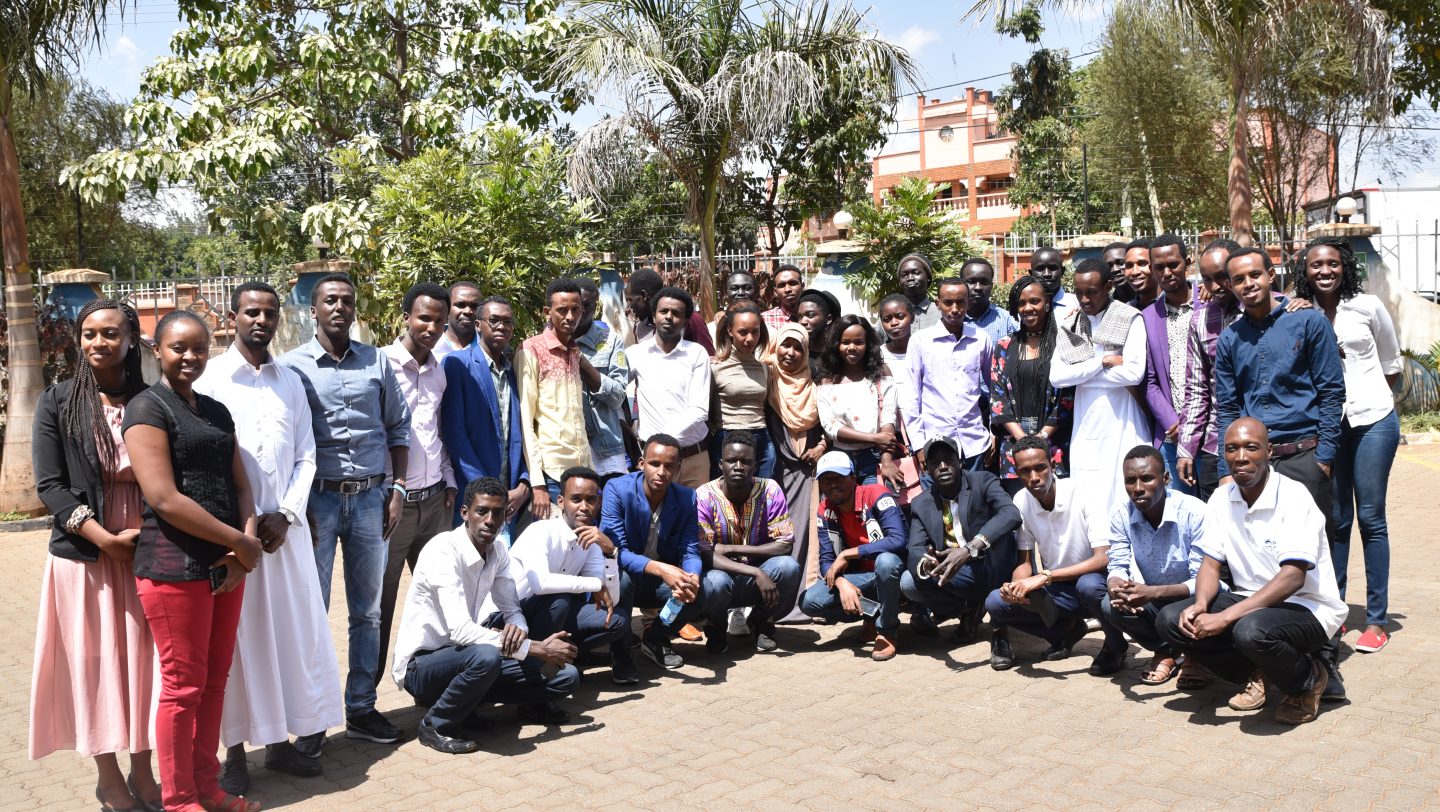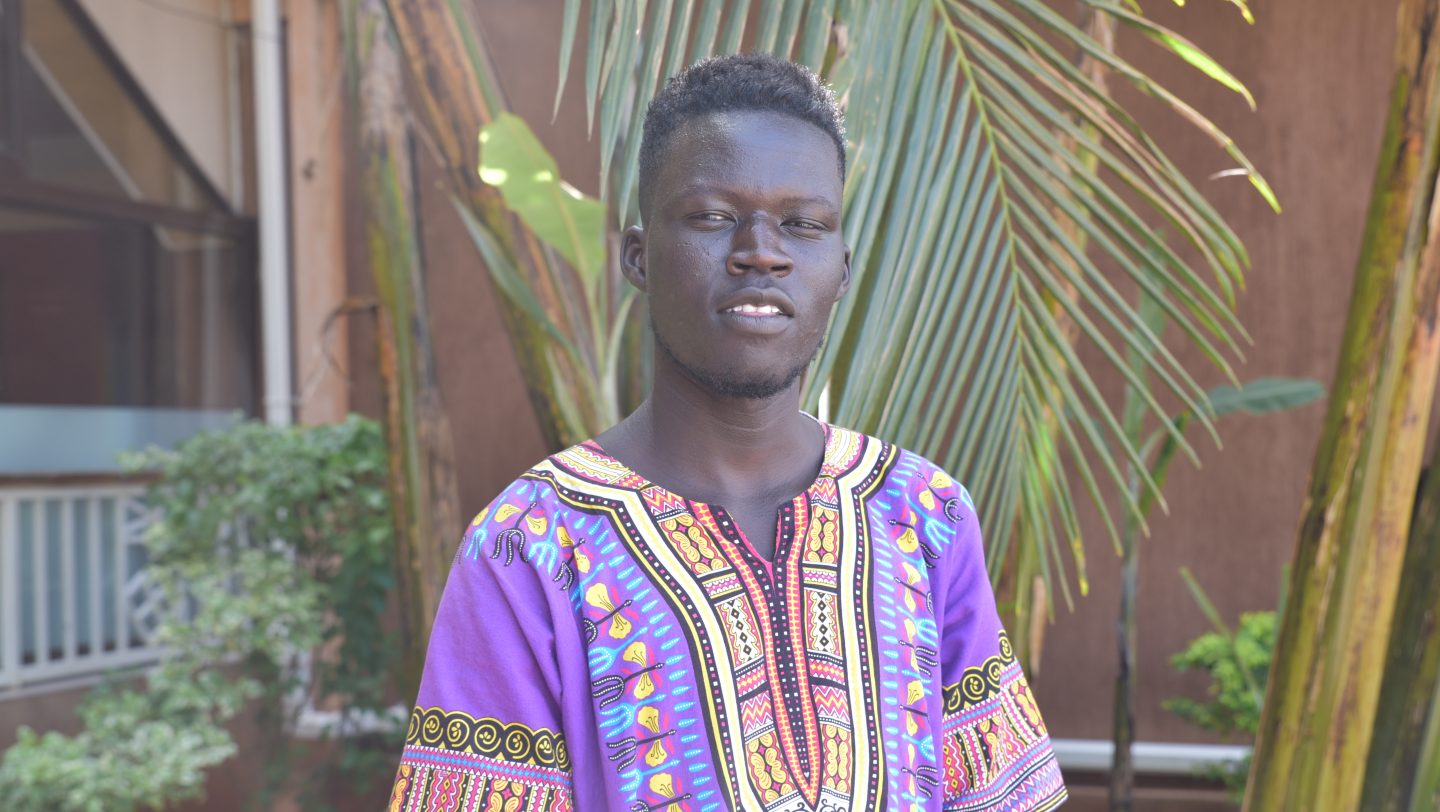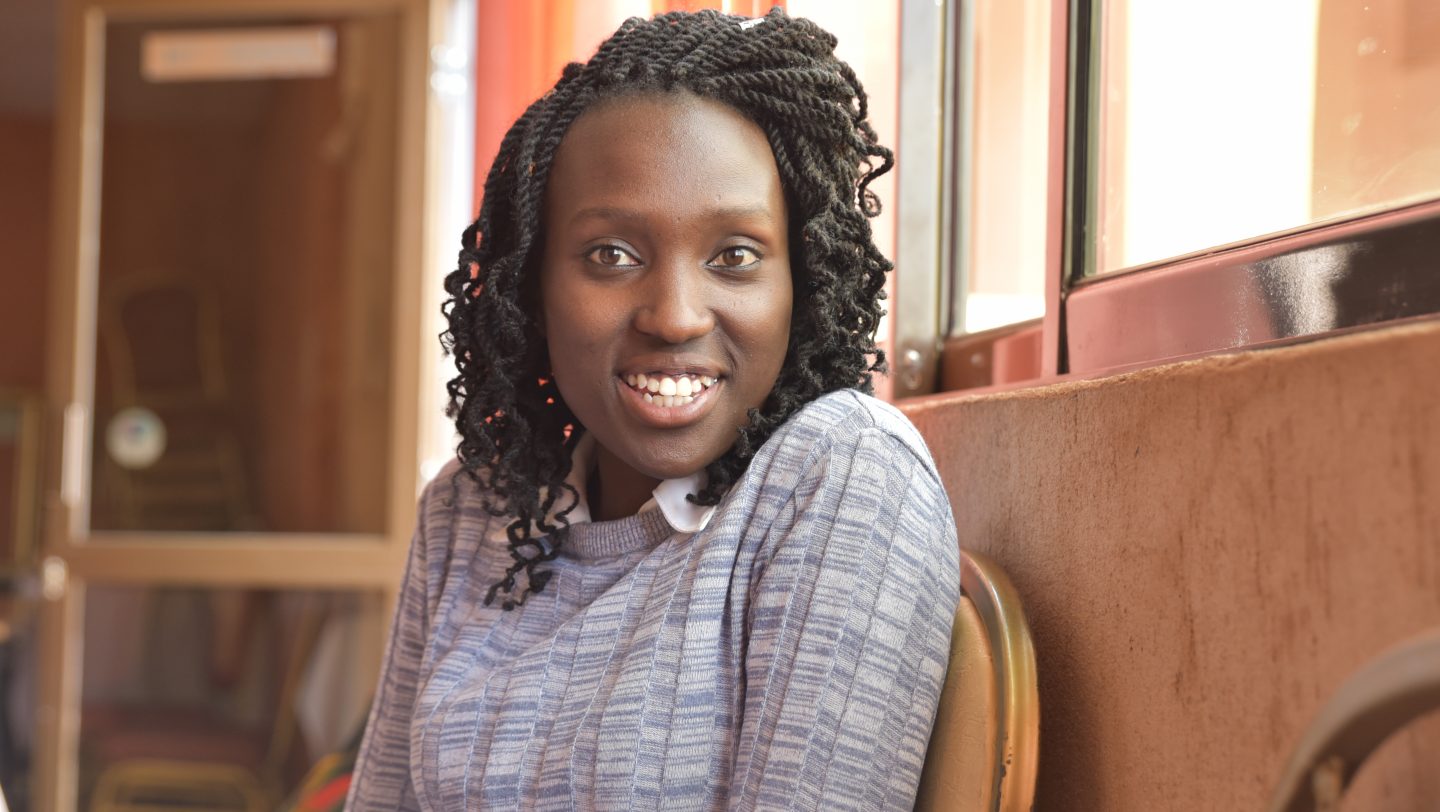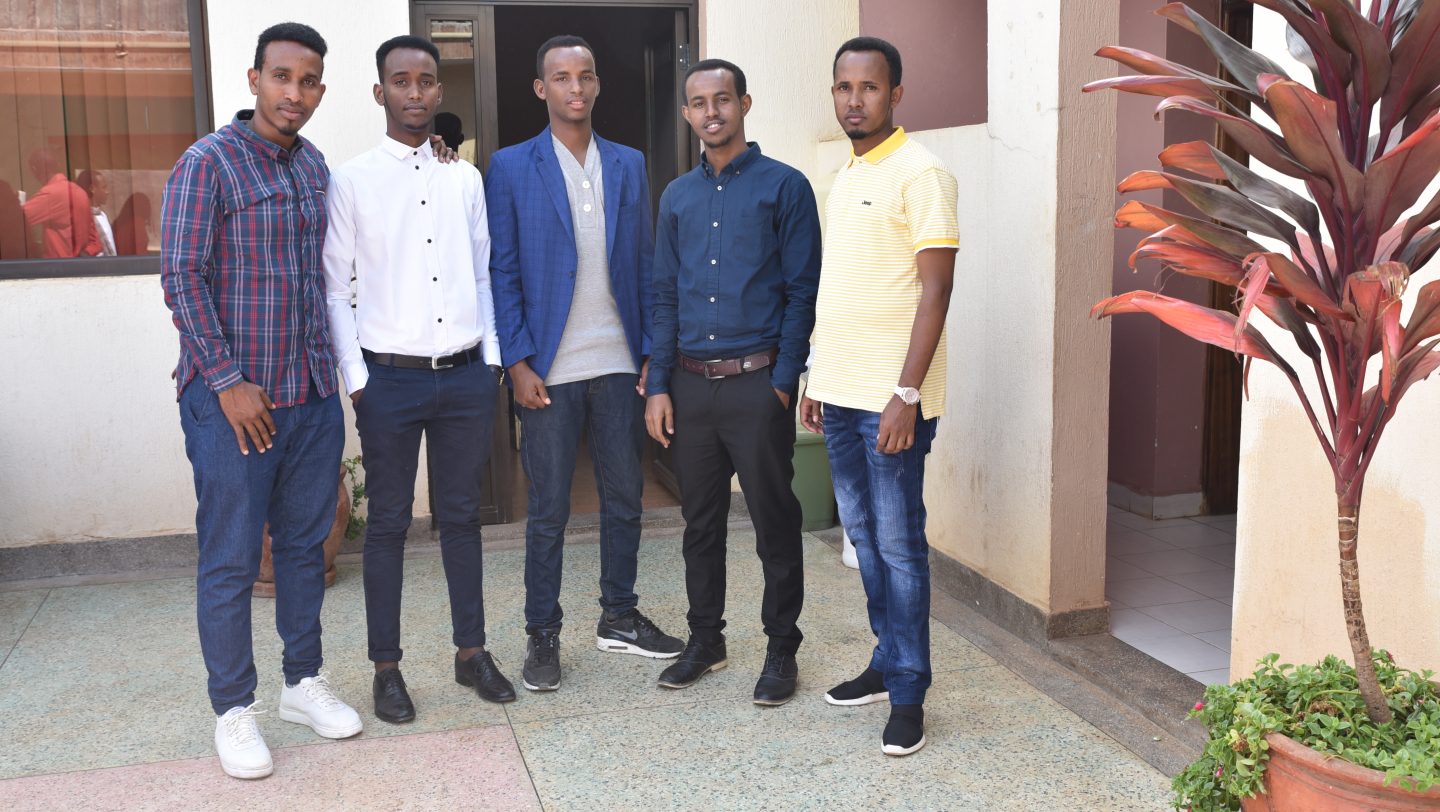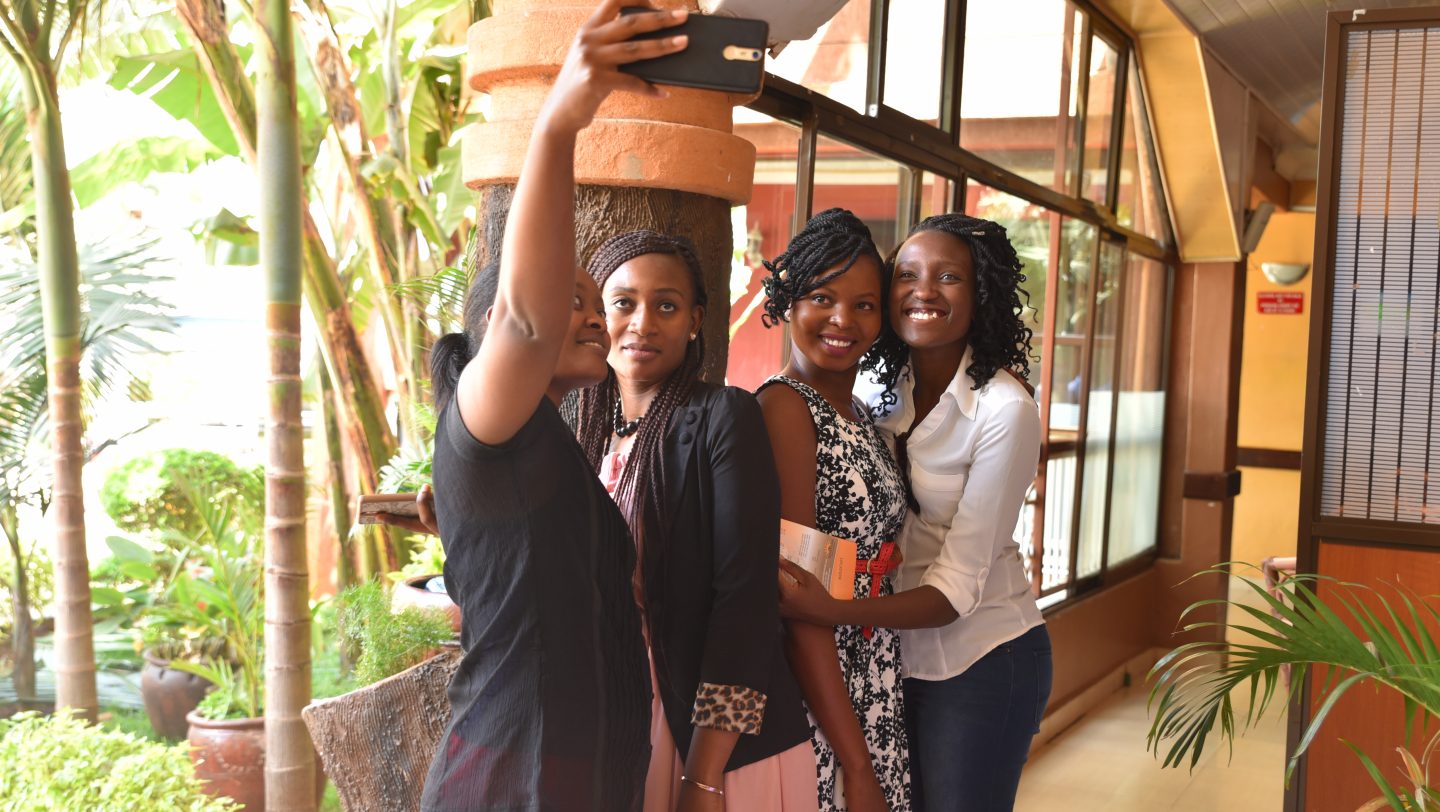Kenya refugee students prepare for a start of German educational scholarship
Each year DAFI gives out university scholarships to at least 100 refugee students. But it’s still a drop in the ocean of what’s needed. For all 650 refugees eligible for university study, there are only ever places for around 100.

Meet 26-year old Ijabo Omar Ahmed, a Somali refugee student from Dadaab refugee camp in Kenya, and one of 160 recipients of the Albert Einstein German Academic Refugee Initiative Fund, known as the DAFI scholarship. She is studying Bachelor of Science, Nursing at University of Nairobi.
© Photo by @UNHCR/Caroline Opile
Meet 26-year old Ijabo Omar Ahmed, a Somali refugee student from Dadaab refugee camp in Kenya, and one of 160 recipients of the Albert Einstein German Academic Refugee Initiative Fund, known as the DAFI scholarship. Ijabo and 60 other recipients gathered this month in Nairobi for an induction course on commencing the scholarship.
The students are being taken through what’s expected of them as DAFI scholars, and guided through the process of their rights and benefits, and how to do well during the upcoming four years of tertiary education.
“It was a dream come true.”
It’s a far cry from how life started for Ijabo and many other refugee students who received the scholarship.
Ijabo first arrived in Dadaab camp in 2008 as a 17 year old refugee. She had lost her father and brother to insecurity in Somalia, and became separated from her mother. So she tagged along with other neighbours to the safety in Dadaab. Ijabo was enrolled into primary school, and had good grades that enabled her to join secondary school in the camp.
“I sat for my secondary school examination twice, so it was not so easy for me. But I did much better the second time around. I got a B minus, which enabled me to qualify for the DAFI scholarship. I was thrilled when I was informed that my application for DAFI scholarship class was successful. It was a dream come true.”
Ijabo is studying for a Bachelor’s of Science in Nursing, at the University of Nairobi.
“I want to help my community in Somalia and Dadaab camp when I graduate from University.”
Ukech Daniel another student, and refugee from Kakuma is also attending the induction. He is a first year student at Jomo Kenyatta University of Science and Technology, where he is studying for a Bachelor of Science in Information Technology. Ukech was one of 24 refugees from Kakuma refugee camp awarded the scholarship.
Ukech says that it was difficult for him to adjust to campus life when he initially enrolled in September 2017. He says he was so used to living in a camp, living among ordinary Kenyan students was a big change. Ukech says he’s learned a lot from the induction.
“The induction has taught me that time management and self-discipline is important, it’s the only guarantee for success at the University. I am really looking forward to working hard and doing well.”
“I am really looking forward to working hard and doing well.”
Ukech says that his ultimate goal is to graduate and then help needy refugee students like him who are unable to further their studies. Ukech understands the magnitude of the opportunity all too well. He became a refugee when he was two years old. Despite limited school facilities, hard work and commitment enabled him to qualify for the scholarship.
Mark Deng, a second year student at University of Nairobi, studies Bachelor of Commerce. Having arrived in Kenya since 2006 when he was only 10 years, Mark says the goodwill of his neighbors in Nakuru town, Kenya helped put him through secondary school. Upon completion, Mark worked as a volunteer teaching adult literacy classes to women.
He says the DAFI scholarship is a great boost to his desire to go back to South Sudan and rebuild the country.
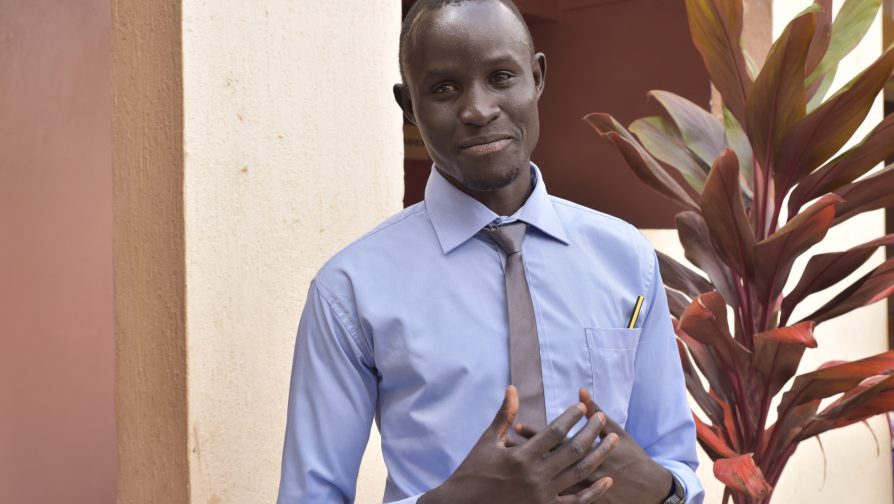
Mark Deng, is a second year studying Bachelor of Commerce with support from DAFI scholarship. Originally from South Sudan, Mark arrived in Kenya in 1995 at the age of 10 years, an urban refugee from Nakuru, Kenya.
“I want to mentor young people, especially those that have given up on life for lack of education or opportunities. I have no other business in Kenya than to go back home to South Sudan, the community needs me.”
Marangu Njogu is the Director of the Windle Trust. The trust works with UNHCR – the UN Refugee Agency in Kenya and is responsible for administration of the DAFI scholarship. He points out the induction is an important process that all DAFI scholars need to enable them to understand the objective of the DAFI scholarship, and the expected conduct of students.
“It is exciting for these scholars. They are expected to be role models to the younger people in the communities they come from, they are also the future of their communities.
Each year DAFI gives out university scholarships to at least 100 refugee students. But it’s still a drop in the ocean of what’s needed. For all 650 refugees eligible for university study, there are only ever places for around 100.
According to UNHCR’s report “Left Behind: Refugee Education in Crisis” only one in every 100 refugee students makes it to tertiary education. Globally 36% percent of people eligible for University have access to it, compared to 1% of refugees.

